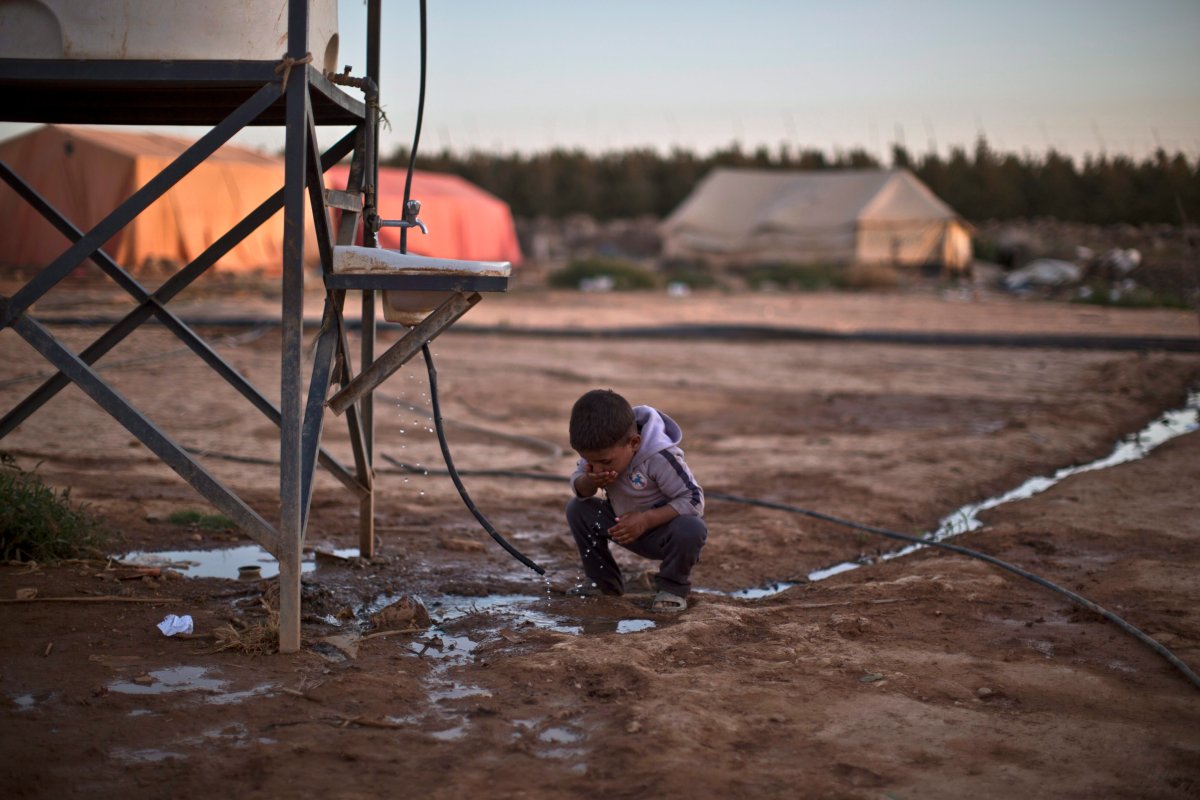Syrian children have been referred to by aid agencies as the forgotten victims. Childhoods scarred by war, violence and displacement, as one in three have been hit, kicked and shot at – and thousands have been killed, according to Save the Children.

“The war is so overwhelming that it’s easy to lose sight of what it means for individual Syrians,” Joanne Liu, international president and physician with Doctors Without Borders, said. “Working in Syria late last year, I saw children suffering from blast wounds and preventable diseases.”
When the Syrian children arrive in Canada as refugees, they will need care, and preparations are underway at the Children’s Hospital of Eastern Ontario in Ottawa.
READ MORE: Sixteen Syrian refugees arrive in Calgary
“We need to respond to the health needs of these Syrian kids, they have been in horrific and vulnerable situations and we really need to provide the health care to prevent long-term health issues. We have been working with our community partners to make this happen,” Charles Hui, pediatric infectious disease physician from The Children’s Hospital of Eastern Ontario (CHEO), told Global News.
Dr. Lindy Samson, chief of infectious diseases at CHEO, believes that delays in treatment and services will lead to poorer outcomes and long-term consequences for the children.
The hospitals and community organizations are still waiting to find out the exact numbers of Syrian children and babies that will be relocated to their cities or what specific diseases or health issues they should prepare for. It can depend on many factors including the conditions the children have been living in, and if they have had any medical care, as well as how long the children have remained in a refugee camp, and the conditions in the camp itself.

Get weekly health news
“Potential gender and sexually-based violence, lack of security, lack of food issues, and the longer time people are in camps with lack of security the increased chance of having mental health issues,” Hui told Global News.
During the process, refugee families are screened for health concerns before they come to Canada, but it is unclear what the children might be suffering from. For now, doctors have to consider the overall region and situation to prepare for “known diseases of prevalence in that area, whether that be tuberculosis, mental health issues and chronic diseases,” Hui said.
In Ottawa, the hospital is partnering with Refugee 613, a community group, which is co-ordinating the arrival and care of Syrian refugees – everything from housing, schooling and health care.
CHEO says the majority of health care will be provided in the community, at established clinics that already provide refugee care and care for new Canadians, physician staffing can be increased if needed. If there are urgent issues children will be treated in hospital. As well, CHEO will provide electronic medical consultations to doctors or health-care practitioners.
The Hospital For Sick Children in Toronto said it is working with other area hospitals and primary care partners and will have more details in the days to come on how it plans to meet the needs of the Syrian children.
A new online diagnostic tool, called Kids New to Canada, was developed by Dr. Hui and the Canadian Paediatric Society. It will be used to assess and screen patients for medical conditions, and the tool also takes into account the effect on health of cultural and social conditions.
The pharmacy department at CHEO has also developed a free software, Picto RX, that can translate prescriptions and medical information into Arabic from other languages anywhere in the world.
“The war in Syria has affected millions, and the most devastating impact has been on children and babies driven with their families from their homes, left without shelter, education or health care. No child decides to become a refugee,” Alex Munter, President and CEO of CHEO, said. “We’re eager to help by sharing our expertise, including the international experience on our team of health professionals.”








Comments